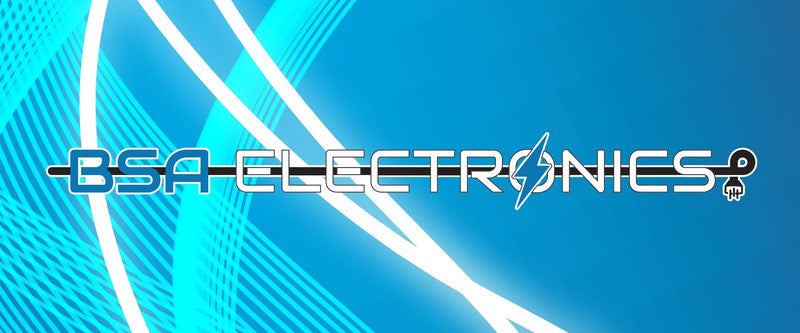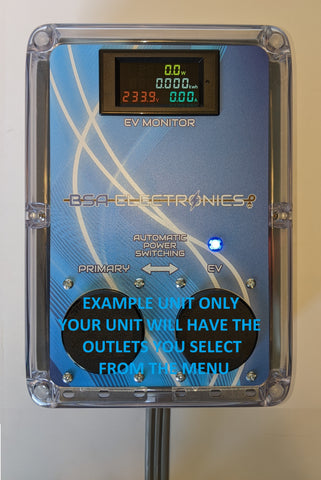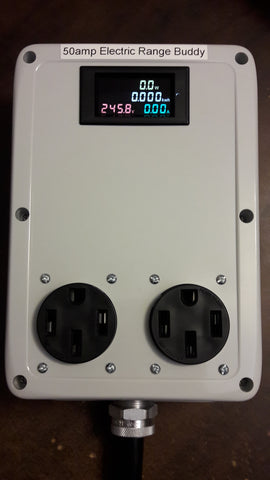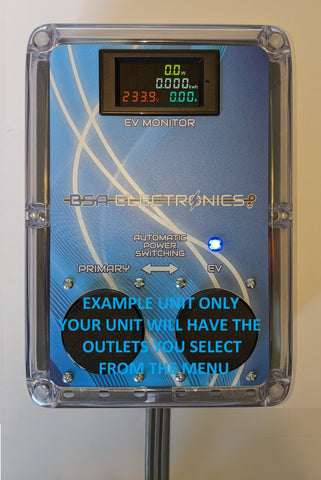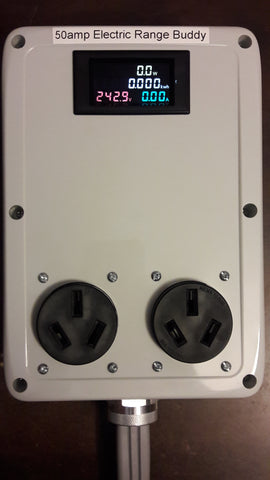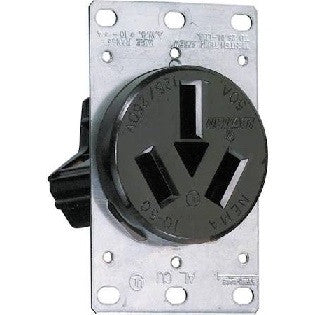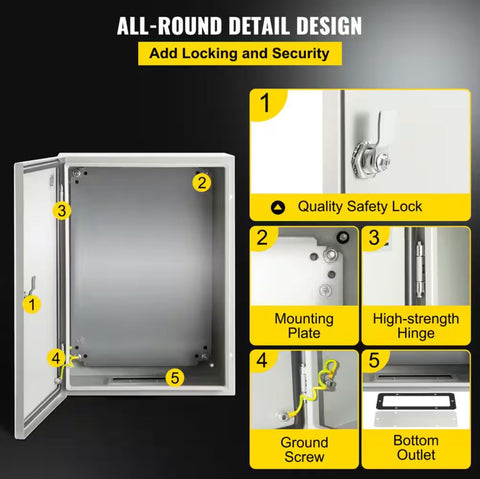Electric Range Buddy Plus AUTO #6 Custom 50A NEMA 10-50 2-way switcher, 3' 10-50 cable to two 10-50 outlets with kWh meter
New GEN II Electric Range Buddy Plus AUTO with a gorgeous new custom graphic and enclosure! This is our best Electric Range Buddy ever! STILL PROUDLY BUILT HERE IN THE USA!!
Electric Range Buddy allows you to share your older 3-prong Electric Range (Stove top) with your EVSE. The idea is the same as the Dryer Buddy and is useful for people where a Electric Range is located near the garage or parking space. Allows both to share the 50A circuit.
The Electric Range Buddy Plus AUTO is a fully automatic 2-way switcher based on the original Electric Range Buddy Plus. It allows you to share your Electric Range outlet with your EVSE without having to flip any switches. Basic operation is simple, the Electric Range outlet is always live and the EVSE outlet is only live when there is enough amperage available to charge your EV. When the Electric Range is off it is drawing little to no amps so the EVSE outlet is switched on allowing your EV to charge. If the Electric Range is turned on at any time then the EVSE outlet is switched off, when the Electric Range is done, power is restored to the EVSE outlet and if your EV needs charging it will resume charging. The switch over point is approximately 3.5amps.
Great for apartment dwellers, temp housing or an easy hookup at a friend’s/relative’s house.
Note: Some Appliances slowly ramp their power draw and/or don't draw significant current (over 3.5 amps) while running, which will cause the RV Buddy Plus AUTO, Electric Range Buddy Plus AUTO, Welder Buddy Plus AUTO to switch the EVSE outlet off or it may switch several times in a short period. For these Dryers we recommend either the PLUS version, that unit offers manual switching between outlets or adding the Delay Controller Upgrade Pak to the Buddy Plus AUTO unit, The delay kit solves this issue; Delay Controller Upgrade Pak. If you are using a Buddy Plus AUTO unit to share one outlet and charge two EV’s (no Appliance) then you will definitely need the Delay Controller Upgrade Pak.
I use a beautiful kWh meter to display important information. This keeps track of how much Energy you are using so you know how much $ in electricity you’ve used, by simple multiplying the value by your utilities rate (0.13/kWh here in Vegas) The meter is wired to read system Voltage and only meter the Current flowing through the EVSE outlet, unlike the original Electric Range Buddy where the meter reads all Current flowing through the unit. In this configuration the Kilowatt Hours (kWh's) will only accumulate for Energy flowing through the EVSE outlet (on the right of the face) this value is stored between power outages and may be reset when you like. This allows you to see only the Energy your Electric vehicle has consumed.
Need some help identifying your wall outlet? We can help! Below is a description of the more common NEMA outlets and their numbers as well as some handy NEMA plug charts. You can also email us a pic of your plugs and outlets you need help identifying and we would be happy to help.
Here are the more common NEMA outlets:
- 5-15 standard 15A 120 volt household outlet, the most common you see everywhere.
- 5-20 standard 20A 120 volt household outlet, required by code in bathroom and behind your refrigerator.
- 6-15 standard 15A 240 volt household outlet, found in homes and motels for running in-wall Air Conditioners, it’s the smaller brother to the NEMA 6-20 outlet. The 5-20 is not as common as a 6-20 outlet with it’s “T” shaped slot as it will accept both 6-20 and 6-15 plugs.
- 6-20 standard 20A 240 volt household outlet, found in homes and motels for running in-wall Air Conditioners, also found occasionally in residential garages.
- 6-50 standard 50A 240 volt 3-prong outlet, found in shops and garages used for large welders.
- 10-30 standard 30A 240 volt 3-prong Dryer outlet found in homes build before 1996
- 14-30 standard 30A 240 volt 4-prong Dryer outlet found in homes build in 1996 and newer
- 14-50 standard 50A 240 volt 4-prong Range (electric stove top) outlet, also called RV-50 at the RV parks. By far the best universal connector to have for an EVSE. This is the one the Tesla guys install in their garages.
- TT-30 (Travel Trailer 30amp) 30A 120 volt 3-prong outlet, the older style found in RV parks, not used in residential homes.
- L6-30 (locking 240 volt 30amp) Twist-Lock 30A 240 volt outlet, my personal favorite locking connector, easy to find in stores, works great for adding adapters to portables EVSE’s equipped with a L6-30 plug.
220/240 volt outlets are commonly install with the ground pin towards the ceiling for safety. 110/120 volt outlets can be found mounted in all directions. Be sure to carefully look at your outlet and the chart, it's easy to mistake one outlet for another if your outlet has it's ground pin facing the floor instead of the ceiling or Vice Versa compared to the chart.
In the full NEMA number you will see a capital R or P. The R stands for Receptacle (outlet) and the P stands for Plug, we commonly truncate this to just the numbers and add the word receptacle (or outlet) at the end. For example 14-50R becomes 14-50 receptacle or 14-50 outlet.


Need some extra length between your Dryer outlet and Dryer Buddy™ or between the Dryer Buddy™ and your Electric Vehicle Charging Station (EVSE)? I custom build extension cords to the length your need and with the plug and outlet of your choice, see my extensions in the Adapter’s section for several models; Extension Cords
Email me with your custom request.
Customer Reviews
We Also Recommend
